Iran’s UK Ambassador Reportedly Fired Over Hijab Incident
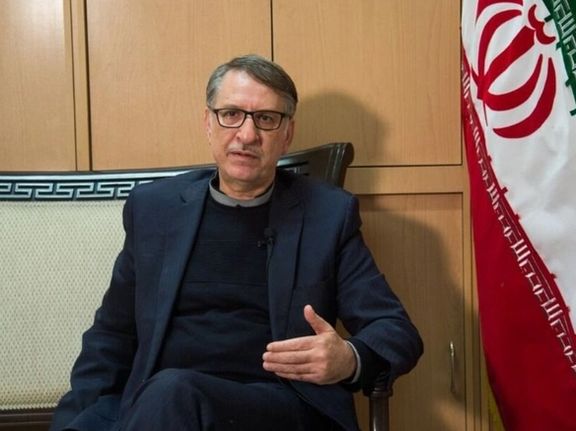
Mohsen Baharvand, Tehran’s ambassador to London has been called back to Tehran by the Foreign Ministry following a controversial ceremony at the embassy.

Mohsen Baharvand, Tehran’s ambassador to London has been called back to Tehran by the Foreign Ministry following a controversial ceremony at the embassy.
Kayhan newspaper, affiliated with Supreme Leader Ali Khamenei’s office, said Saturday that Baharvand had been dismissed from his post over a “norm-breaking” ceremony two weeks ago to mark the anniversary of 1979 Islamic Revolution
A video posted to the internet apparently from the ceremony showed women not wearing hijab. While hijab is compulsory in public in Iran, Iranian officials often attend events outside the country where it is not worn.
An unveiled woman was seen in the video playing the piano, alongside a male violinist. The video then pans across guests to photos on the wall of the 1979 Revolution leader Ruhollah Khomeini and his successor as Iran’s Leader Ali Khamenei.
Kayhan said the embassy had not observed diplomatic protocols, and Fars News, an affiliate of Iran’s Revolutionary Guards, suggested the ceremony had not been in line with “the values of the [1979] Islamic Revolution.”
The INLA news agency cited Saeed Khatibzadeh, the foreign ministry spokesman, saying Baharvand was one of 38 envoys set to be replaced. Baharvand became ambassador in 2021, and was formerly for a year deputy foreign minister for international and Legal Affairs: he was appointed to both posts under the former administration of President Hassan Rouhani.
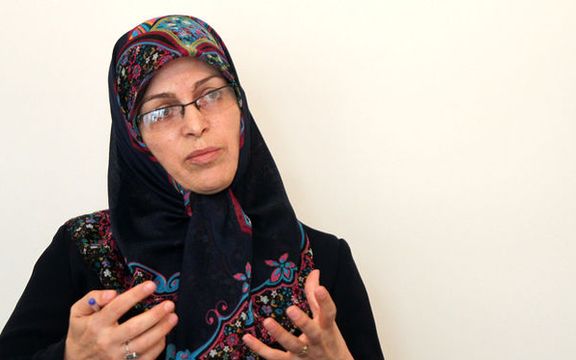
Religious hardliners in Iran have slammed Azar Mansouri, the first female party leader, for keeping a dog at home and "trying to normalize living with dogs".
The reformist newspaper Shargh published a video February 15 – along with a feature article "One Day With Madam Secretary General" – in which Mansouri talked affectionately with a dog.
Mansouri, who was elected secretary-general of the reformist Etehad-e Mellat (National Unity) Party in December, said that her son and daughter-in-law had brought the pooch home but had hidden him from her. Mansouri said she had at first been upset, but after a week refused to let them take the dog away “because it showed a lot of affection.”
Dogs are generally considered 'impure' in Islam and banned in public places by some majority-Muslim countries including Saudi Arabia. Iranian parliamentarians in November proposed a bill making illegal selling and keeping of pets. They claimed the ban was meant to protect public health. While working dogs have always been common in Iran’s rural areas and on farms, keeping pets has only recently become fashionable in urban areas.
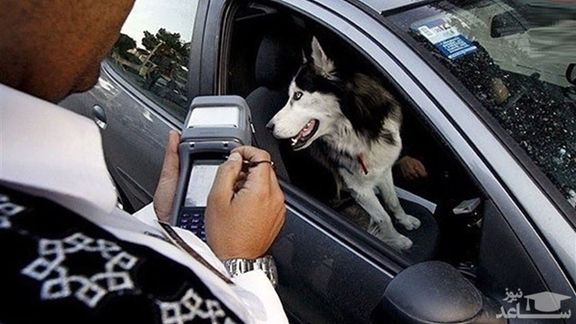
The video was pounced on by hardliner rather than reformist media. Fars news agency noted that “reformists who claim it is people's right to know have chosen silence about Mansouri's remarks.” The Fars report suggested the reformists’ “unedited” images showed “disrespect for Islamic sanctities” and promoted “anomalous cultural behavior.”
A few days later, a second video appeared on social media showing an elderly lady at prayer with a dog playfully jumping at her, tugging her veil, and playing on her prayer rug. Some sharing the video said it showed Mansouri promoting "living with dogs".
Pets, not children
One widely shared tweet critical of Mansouri quoted the Prophet Mohammad saying, "there is no blessing in a house where there are no children." The tweet suggested that the "reformist Azar Mansouri and the rest of her gang" were promoting dogs as an alternative to children. Another tweet claimed that an obsession with pets had contributed to "destruction of the foundation of families" in the west, echoing views expressed by Pope Francis in January.
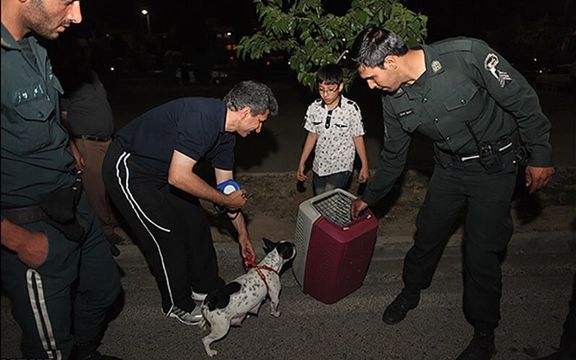
Ali Najmedin, a political analyst, alleged that reformists were trying to “to normalize indecency” and "desensitize" Iranian society to other steps including flouting the hijab, adultery and homosexuality.
But Hossein Kermanpour, a prominent physician in Tehran with reformist leanings, rose in defense of the National Unity Party and her mutt. "Dear Azar Mansouri, those who have intentionally claimed you were the kind elderly mother a dog affectionately tries to play with while she is at prayer know that dogs do not destroy a human being’s connection with God,” he tweeted. “What distances humans from God is poverty, oppression, dishonor and injustice if they happen under Islamic rule.”
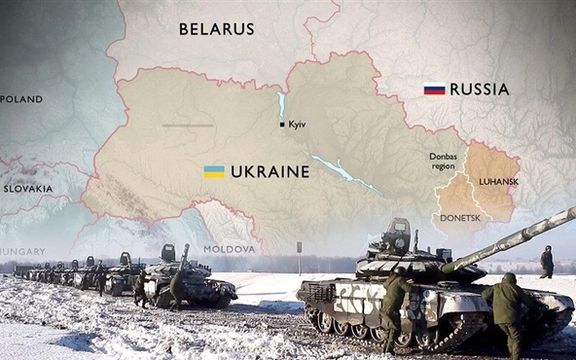
Iran's state television, operating under the control of Supreme Leader Ali Khamenei, has been supporting Russia's invasion of Ukraine during the past two days.
With a government appropriation of $200 million a year and huge advertising income, the coverage of the state TV was so blatant that according to former lawmaker Ali Motahari it is as if Iran is a Russian colony.
Meanwhile, as President Ebrahim Raisi rushed to express support for Russia, observers on social media said the sheer fact that he called Vladimir Putin in this situation, puts the Islamic Republic in an embarrassing situation.
Later Friday, Iran's security Chief Ali Shamkhani also supported Russia's military move into Ukraine. The state TV, Raisi and Shamkhani portrayed Russia's aggression as an attempt to defend itself against advances by NATO, fully endorsing Russia’s claims.
Possibly as a concerted attempt, nearly all the Friday Prayer Imams in various Iranian provinces trumpeted the idea of Russia defending itself against NATO in their sermons, Mehr news agency reported.
Asr Iran website in Tehran wrote on Friday that Iranian conservatives have been cheerfully welcoming Russia's attack on Ukraine. The website quoted some conservatives as saying that the United States has left Ukraine alone in the face of invasion and other countries should not count on US support.
The website noted that the state TV does not use the words "attack" or "invasion" about Russia's move and constantly talks about Russia's "special operation." According to the website, the state TV praises Putin for his "authoritarian rule" as an element that reinforces likeminded people in Iran in their confrontation with the supporters of Western liberalism.
Meanwhile, commentators on state TV keep saying that as the United States is busy with the Ukraine crisis, it can no longer exert pressure on Iran in the nuclear negotiations. At the same time, as Russia's move brings on a series of European and US sanctions against Russia, this gives Iranian hardliners a good feeling that there are not alone in their isolation.
The website also added that it would have been difficult for Iran to defend Russia had it attacked a Muslim country such as Afghanistan or Azerbaijan, but Iranian leaders believe that no one in the country expects them to defend the people of Ukraine.
However, Iran has turned a blind eye to persecution of Muslims in China and elsewhere.
Iranian leaders' also think that the invasion of Ukraine will portray Russia as a more powerful ally for the Islamic Republic, although technically, Russia is not Iran's strategic ally. Russia has never stopped any of the UN sanctions and resolutions against Iran in the past 15 years.
Nonetheless, the paradoxical point is that Iran officially opposes all forms of separatism. Supporting the separatists in Ukraine could be embarrassing for Supreme Leader Ali Khamenei and therefore, this is a point the state TV tries to ignore in its reporting.
Conservative commentator Jalal Khoshchehreh warned the Iranian government that Russia's actions in Ukraine and Iran's support for it will promote separatism in the rest of the world.
Khoshchehreh suggested that Iran should defend Ukraine's territorial integrity. He was probably pointing to the fact that there are several ethnic and linguistic groups all around Iran with some people among them having separatist tendencies. Stressing that Russia's invasion of Ukraine will empower radical nationalists everywhere, he asked: "Are other countries entitled to deploy forces to a foreign country to support their separatists?"
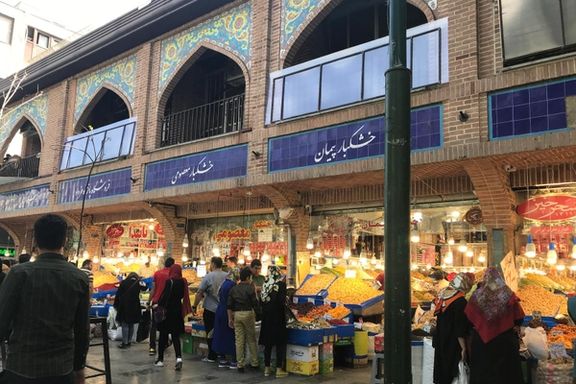
With only a few weeks left until the new Iranian year on March 20, prices of essential food items are still rising at alarming levels, local media report.
The last weeks of the year in Iran are traditionally the time that the prices jump in anticipation of more demand and this year is no exception, especially with general inflation hovering around 40-percent for the past year making the situation worse.
Food prices have been rising much faster, with government figures showing above 60-percent inflation at retail level in 2021, compared with 2020.
Sugar and different types of rice are usually items with highest price increases followed by different kinds of meat, chicken and eggs as well as cooking oil.
Each year the government announces some measures to control the prices such as supplying subsidized food items, distributing basic goods through state-owned chain stores, banning exports or punitive measures for wholesale middlemen or retailers who don’t abide by state-regulated prices. Usually, all such measures turn out to be ultimately in vain and only lead to more tension in the market or corruption by state companies who control the distribution of sugar, rice and other basic food items.
In recent months, prices for rice – which is the main staple food in Iranian diet -- experienced a lot of fluctuations, reaching to about 1,000,000 rials (about $4) per kilogram, which is enough for five to eight people for one meal and many families eat some rice-based meals twice a day. However, an average Iranian wage-earner gets $100 to $200 per month.
To regulate the rice market, the government recently started fixing the price of this commodity, and the Agriculture Ministry announced a price list for different types of Iranian and foreign rice.
But still consumer prices at grocery shops are different from those announced by the authorities. When the ministry’s inspectors confront the wholesalers and retailers about their higher prices, their response usually is that they rather close their businesses than sell their goods at government prices and lose money. Somewhere in the supply chain prices go up and especially retailers complain that they pay much more than the official price.
In addition to rice, the red meat market is also in so much turbulence that the government has banned the export of live cattle to prevent rising prices.
According to data provided by the Trade Ministry, the price of one kilogram of beef in December was over 40 percent more than that of the corresponding period in the previous year.
The head of Cattle Farmers Association, Ahmad Moghaddasi, told Mehr News that producers’ prices have not changed in recent months, but retail prices have jumped dramatically.
He criticized the authorities for failing to control the prices in the meat market, stating that “unfortunately the brokers and intermediaries are stronger than the authorities,” therefore they benefit from the losses of both producers and consumers.
The highest price increase is related to sugar, which jumped by 76 percent compared to October 2020 as the government stopped allocating cheap dollars for its import.
Since April 2018, Iran has been providing US dollars to importers of essential goods at the preferential rate of 42,000 rials, while the dollar has steadily climbed against Iran’s rial, reaching 290,000 in November.
This was in fact a food subsidy first provided when looming US economic sanctions in early 2018 were already creating high inflation in the country.
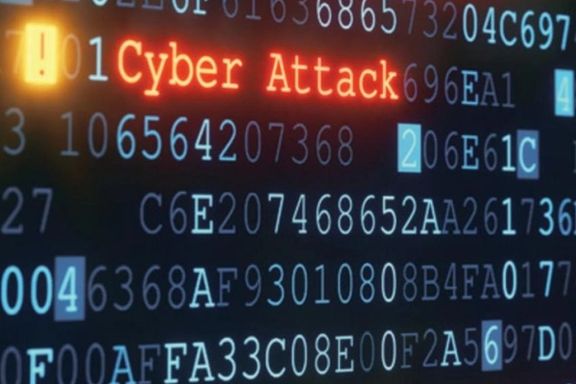
Iran-sponsored cyber espionage group MuddyWater is conducting malicious operations against a range of government and private organizations, a report by US and UK says.
The advanced persistent threat (APT) actors have been active across various sectors, including telecommunications, defense, local government, and oil and natural gas, in Asia, Africa, Europe, and North America since approximately 2018.
The report is the result of cooperation among numerous US and UK security and law enforcement agencies and authorities, such as the FBI, the US Cybersecurity and Infrastructure Security Agency (CISA), and the UK’s National Cyber Security Centre.
MuddyWater -- also known as Earth Vetala, MERCURY, Static Kitten, Seedworm, and TEMP.Zagros – “exploits publicly reported vulnerabilities and uses open-source tools and strategies to gain access to sensitive data on victims’ systems and deploy ransomware” and maintain persistence on victim networks to trick legitimate programs into running malware.
Earlier in January, the US military confirmed that MuddyWater is a subordinate element within Iran's intelligence ministry that steals data from networks around the world, “conducts domestic surveillance to identify regime opponents” and “surveils anti-regime activists abroad through its network of agents placed in Iran’s embassies".
However, a spokesman from the UN mission of the Islamic Republic speaking to Reuters rejected "these baseless allegations and insisted these allegations are part and parcel of the psychological warfare waged against Iran and of no factual or legal value whatsoever”.
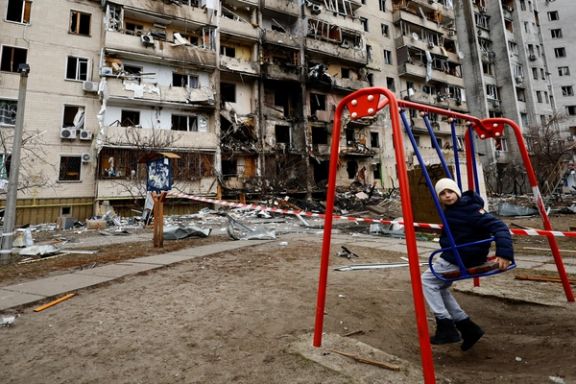
In a phone call with Russia’s President Vladmir Putin Thursday, Iran’s President Ebrahim Raisi called Nato’s “continued expansion” eastwards “a serious threat.”
The phone call, apparently initiated by Raisi, followed Russia's invasion of Ukraine. "The President of Iran expressed understanding with respect to Russia’s security concerns caused by the destabilizing actions of the United States and NATO," a Kremlin press release said Thursday evening.
Putin told Raisi that Russia had taken "a legitimate response" to decades of the “West” violating security agreements and efforts to undermine Russian security, Press TV, Iran's state-run English-language channel, reported.
“The eastward expansion of Nato is a source of tension,” Raisi told Putin. “The continued expansion of Nato is a serious threat against the stability and security of independent countries in various regions of the world.”
Ten eastern European countries have joined Nato, a military alliance, since 1999. With the Ukrainian government wanting to follow suit, Moscow had requested assurances from Nato that Ukraine would not be admitted.
Some Iranian journalists and media have criticized Raisi's call. "What is the justification for Raisi's call to Putin on the first night of Russia's invasion of Ukraine and subtly supporting Russia?" Behrouz Azizi, an Iranian journalist who calls himself a "moderate conservative", tweeted Thursday.
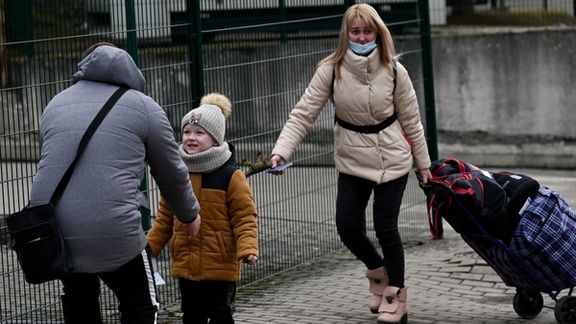
Others have argued that Raisi's views on Nato breach both Iran's official "Neither West, Nor East" mantra and its constitution. "Raisi violated Articles 152 and 154 of the Constitution without any qualms" with his phone call with Putin, Milad Alavi, journalist in Tehran, tweeted Thursday. Article 152 requires “non-alignment with respect to the hegemonist superpowers,” taken at the time to be the United States and the Soviet Union.
Rallying to the Ukrainian cause, journalist Saeed Maleki lashed out at Raisi, tweeting: "You've become so Russophile that you don't even dare to openly condemn the war on Ukraine and the killings. In the phone call all you can do is wishing that these have good consequences…Nothing worse than this could be said."
Russian 'Honeymoon' Won’t Last
Former Iranian ambassador to Baku, Afshar Soleimani, said Iran has not officially approved of Russia's invasion but is standing by Russia's side with "subtle approval." Ali Motahari, a former deputy speaker of parliament, criticized the state media for reporting as if "the mouthpiece of a Russian colony."
Others highlighted Nato’s role.In a series of tweets Friday, Abdollah Ganji, former managing director of Javan newspaper, which is affiliated to the Revolutionary Guards, said Ukraine President Volodymyr Zelenskyy had set the course for war by visiting Nato headquarters last year. Ganji predicted Russia’s "honeymoon in Ukraine" would not last.
The Friday imam of Tehran, Ayatollah Ahmad Khatami, in his sermon Friday said Nato and the US were "meddling all around the world" and "complicating the situation" in eastern Europe as the European Nato powers were "beating on the drums of war."